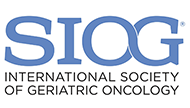Despite the evidence that cancer is a disease of the elderly, very little level 1 evidence on its treatment is available since patients older than 70 are most frequently excluded from clinical randomized trials (Zulman et al. 2011)[i]. In addition, information obtained from the methodologically well-designed studies does not always apply to elderly patients, who experience diverse benefits, increased side-effects/toxicity and reduced life expectancy than younger cohorts (Rutten et al. 2008)[ii]. Unfortunately, this may also translate into a substandard cancer care. EUROCARE–5 (De Angelis et al.)[iii], the widest collaborative research project on cancer survival in Europe, including 21 million cancer diagnoses provided by 116 Cancer Registries in 30 European countries, has recently flagged an unfavorable cancer-related survival rate among the oldest patients. The same scenario has been reported by the National Cancer Intelligence Network showing how in the UK elderly patients affected by solid tumor receive less surgery as compared to the younger counterpart[iv].
Worse oncologic outcomes in the elderly population are mostly related to suboptimal treatments. The chain of events is likely to start from the health care providers who assess the patients in the first place. It has been reported as primary care physicians (Delva et al. 2011)[v] value patient’s chronological age as the main element not to refer patients with advanced cancer to oncologic specialties. But, even if elderly patients are referred to a specialist, a similar age discrimination is likely to be noticed once again. At the same time, we need to acknowledge that ‘standard of care’ does not always translate into ‘ the best tailored treatment’ when dealing with elderly cancer patients.
Quality of life and restoration of independence should be prioritised over 5-year survival rate: ‘to do less’ might, at times, be in the best interest of patients and families. Several strategies to promote conservative/organ sparing, cancer surgery have been developed; some of these techniques were originally designed for young patients with early-stage cancer although they seem to adequately serve purpose with the older patients’ needs.
The balance between ‘standard of care’, ‘conservative treatment’ and ‘under-treatment’ is difficult to establish: a tight co-operation between professionals of different fields is needed to prioritize the patients’ needs and demand, rather than conform to the physicians’ skills.
Scientific Societies and working groups have been developing standardized pathways to diagnose, treat and often cure rectal cancer. A thorough reassessment of this expertise by the proposed dedicated task-force will assist clinicians to gain a broad outlook of the multiple facets of rectal cancer care when diagnosed to an elderly patient.
References
[i] Zulman, D.M., Sussman, J.B., Chen, X. et al. (2011). Examining the evidence: a systematic review of the inclusion and analysis of older adults in randomized controlled trials.
J Gen Intern Med, 26, 783-790.[ii] Rutten, H.J., den Dulk, M., Lemmens, V.E. et al. (2008). Controversies of total mesorectal excision for rectal cancer in elderly patients.
Lancet Oncol, 9, 494–501.[iii] De Angelis, R., Sant, M., Coleman, M.P. et al. (2014). EUROCARE-5 Working Group. Cancer survival in Europe 1999–2007 by country and age: results of EUROCARE-5 – a population-based study.
Lancet Oncol, 15, 23–34.[iv] National Cancer Intelligence Network. Major resections by cancer site, in England; 2006 to 2010. National Cancer Intelligence Network short report.
http://www.ncin.org.uk/about_ncin/major_resections.[v] Delva, F., Marien, E., Fonck, M. et al. (2011) “Factors influencing general practitioners in the referral of elderly cancer patients,”
BMC Cancer, 11, 11-5.




